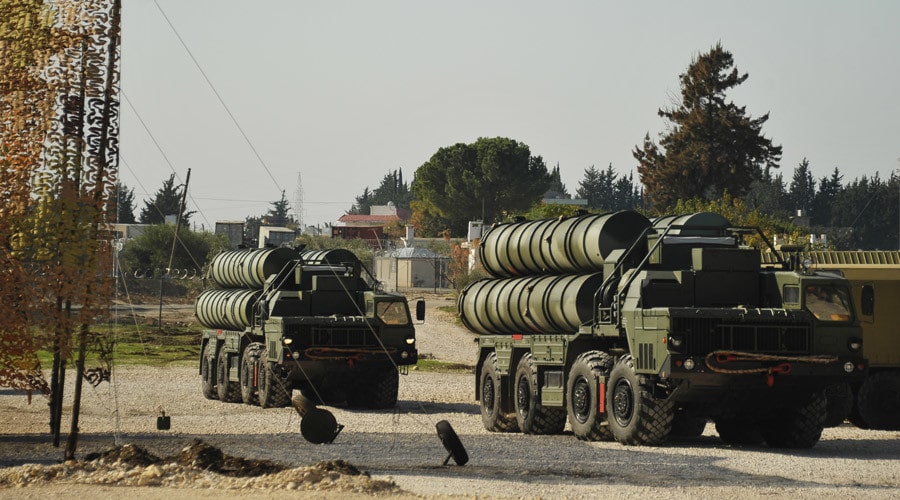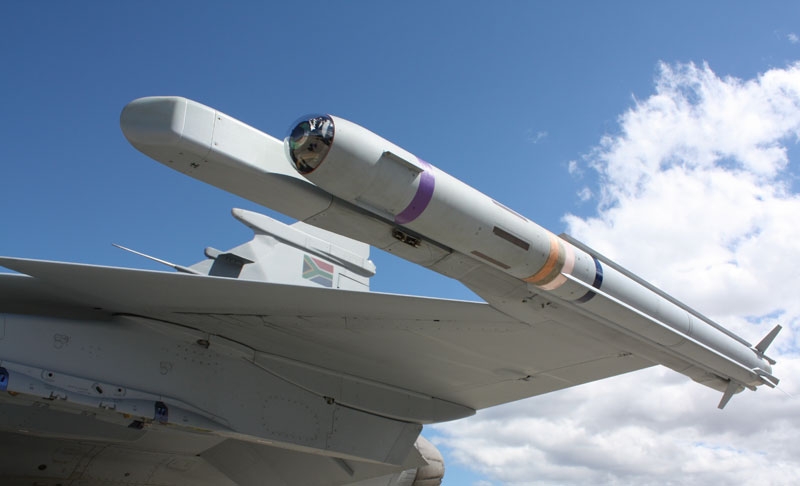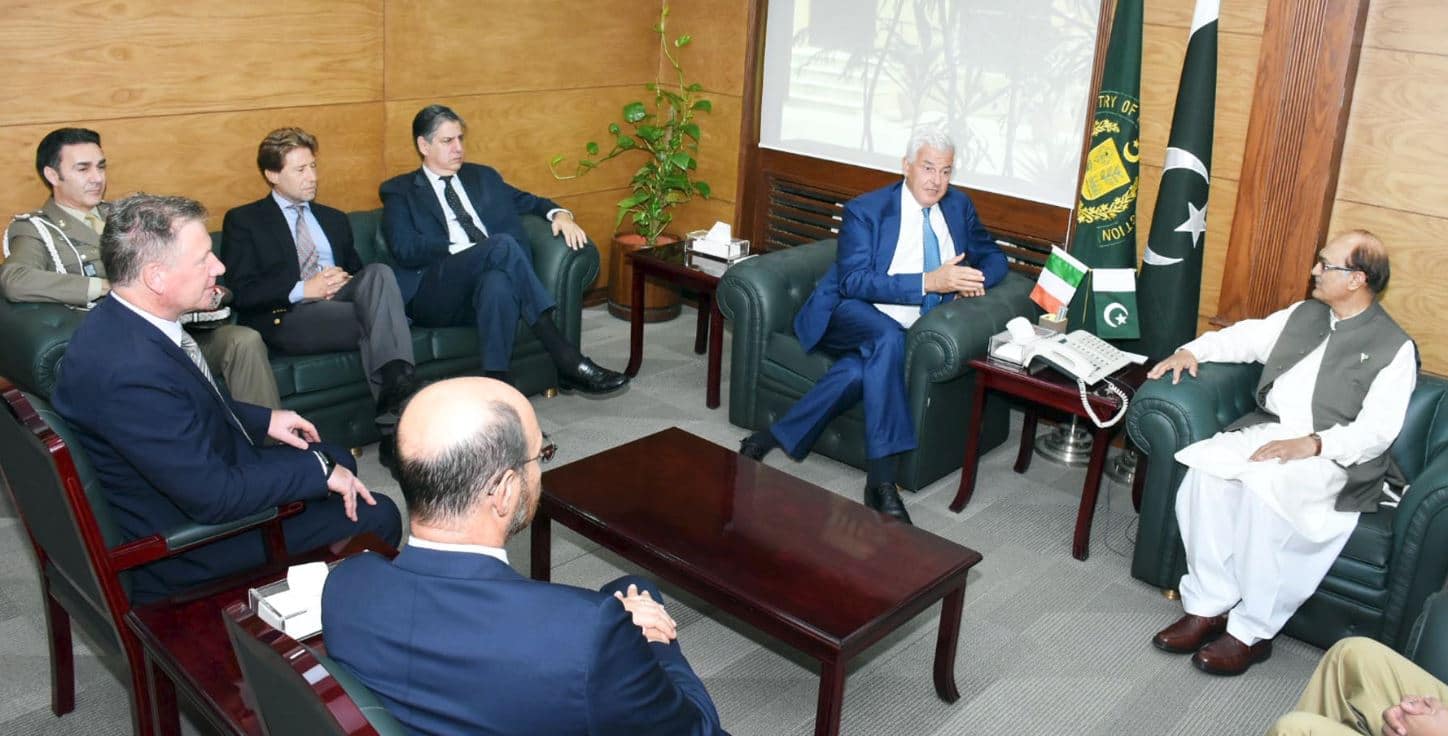2025Views 13Comments

Russia reportedly begins delivering S-400 systems to China
The Russian News Agency TASS reports that Russia has begun delivering Almaz-Antey S-400 Triumf long-range surface-to-air missile (SAM) systems to China.
“[China’s] shipment includes a control station, a radar station, energy and support equipment, spare parts, various tools and other elements of the S-400 system,” states TASS citing an unnamed source.
The news was later confirmed by Russia’s Federal Service for Military-Technical Cooperation, which had added that some of the equipment got damaged due to a storm while en route to China.
China is the launch export customer of the S-400, having signed a contract for the system in November 2014. China is also the foreign launch buyer of United Aircraft Corporation’s (UAC) Sukhoi Su-35 Flanker-E, having signed onto 24 aircraft in November 2015. Deliveries of the Su-35 began in December 2016.
Considering the serial production of both long-range SAMs and Flanker-series fighters in China, these off-the-shelf purchases from Russia are intriguing. At the minimum, Beijing’s imports do indicate a willingness to continue engaging with the Russian industry as well as a parallel avenue (to domestic production) for procurement, enabling it to shore-up air combat and air defence capabilities at a faster pace.
The S-400 can engage targets at up to 400 km through the use of its 40N6 SAM. However, as a multi-layered system, the S-400 is also equipped with shorter-range SAMs – i.e. 48N6 (250 km), 9M96E2 (120 km) and 9M96E (60 km). Hence, it is a comprehensive air defence system.
Turkey followed China as the second S-400 buyer, having inked a deal – along with a down-payment – at the end of 2017. India had principally agreed to acquire the S-400 in October 2016, but the Times of India reports that final contractual negotiations between New Delhi and Moscow are now underway.
The S-400 has also drawn active interest from Saudi Arabia and Bahrain, with the former even signing a memorandum-of-understanding (MoU) to potentially pursue a contract. Following Turkey, it appears that Russia is making in-roads with marketing the S-400 to countries that have traditionally relied on Western weapons, especially for big-ticket/high-cost requirements such as long-range air defence.
However, in the cases of Turkey and Saudi Arabia, the S-400 would be in relative proximity to Western air defence systems. Turkey’s issues with NATO aside, even Saudi Arabia would have a comparable concern seeing that it is also seeking the Terminal High Altitude Area Defense (THAAD) system. In such cases, the S-400 would be operated in a parallel or stand-alone format, but concerns surrounding the exposure and leaks (to Russia and/or the U.S.) of system radio frequencies from both systems remain.



13 Comments
by Joseph
The possible failure of recent ballistic missile interception in Saudi Arabia: https://taskandpurpose.com/saudi-arabia-patriot-missile-defense/ probably alarmed many countries that how effective the American systems are against ballistic missiles.
It would be interesting to see if S400, put into similar situations, can do better.
by Umar Farooq
Ballistic missile defense system are not very efficient … considering countermeasures can render most systems ineffective …and with multiple re-entery vehicles ,electronic countermeasures,etc it’s very very difficult …firing few dozen cheap scuds at once will make it very difficult for any system on the planet to shoot down every single one …if you are really interested in ballistic missile defense must listen to arms control wonk podcast
by Jigsaw
So in a couple of years from now we can expect a Chinese version of S-400 available for export and hence a possible acquisition of LRSAM by Pakistan (?).
by Syed arham
Pakistan desperately needs a good SAM system. We completely lacks in air defence compare to India now. How can we shoot down those brahmose and other ballistic missile fire from India into Pakistan ?
by Steve
It’s a good system. Arguably the best in the world. We need 4 systems covering the 2 largest cities and the capital, along with Gwader. The capital batteries will also cover some of our strategic nuclear/missile installations. This is a “defensive” system so may be possible to acquire off the shelf. If we can’t get S-400 at least the Chinese equivalents will be useful. Long range SAM have been a neglected area of our defence for a long time.
by Joseph
I understand it is difficult, I think the official track record is only about 1/3 chance a ballistic missile can be intercepted. But Saudis knew that and from what I understand they fired 5 missiles to intercept and tried to even the odds, but it seems all 5 missed the target.
by Jf-17 Thunder
Please write an article on Air Defence Systems for Pakistan, and also on Deployment of Armed drones… as our FC Jawans are dying near pak afghan border from cross border terrorism and they desperately needs drones.
by TZK
Necessity is the mother of invention. During the cold war when USA were flying spying missions over USSR using U2 spy planes that could fly 70,000ft plus, out of reach of interceptors and radar, USSR started developing the LRSAM’s and radar to counter them. S500 is under development for intercepting intercontinental ballistic missiles, hypersonic cruise missiles and aircraft. That system must be nearing completion as they have started selling s400.
by Samar Siddique
i have seen you on quwa and your points are quite valid…. How about asking a question that why is china continuously equipping Pakistan i mean it just cant be to protect Cpec, there must be more to that. And i never doubted their friendship maybe that`s the cause but then again there was a time when US equipped Pakistan heavily i mean 63 F-16`s. you know the proverb about eggs and omelet right!!! but you usually need a chef or that too.
by Jigsaw
Two reasons:
-It’s business (as in money).
-It serves its (US or China) own long term interests.
When interests collide, partnerships like US-Pakistan of today emerge. When interests converge, partnerships again like US-Pakistan in 80’s emerge – or something of Pakistan-China.
Pakistan has unfortunately always been in search of a cushion to lean on. Sometimes it’s US and sometimes it’s China. Rest assured, China sees Pakistan as its shield to keeping India occupied and worked up. 90% of India’s time is devoted to obsessing over Pakistan – what better deal China would want while it becomes the next emerging super power. If it comes to war, it will most likely be between indian and pakistan and not china and india. China also portrays Pakistan’s defence deals as proof of its successful products. So yes, there’s nothing personal about it of sweeter than honey and all that crap. For the time being, it’s best Pakistan creates a stronger defence driven alliance with China, Turkey, Iran and a neutral to positive relationship with Russia and EU, while maintaining the fragile alliance with Americans. Unfortunately there’s idiots like Khawaja asif giving out superficial statements against US, while doing nothing on the diplomatic front. There’s no think tank in Pakistan that analyzes and gives proposals on long term planning to gov. There’s basically bunch of self styled einsteins dealing with issues on adhoc basis, including the military at time.
I guess Pakistan is simply trying to survive because of an incapable gov known for corrupt practices and treason against state, a large majority of illiterate populace defending the corrupt, and a military of status quo whose best bet is keeping india deterred by brandishing its nuclear weapons. The more it goes on, the more weaker will pakistan become and hence embrace the chinese more closely in their oblivion.
Pakistan has no long term plan. It’s a country that deals with things on adhoc basis. No wonder the country with one of the largest irrigation system in the world is on verge of bringing back “dhobi ghaats” due to shortage of water.
It’s a mess in short that will take decades to clean.
by Steve
Well said and good analysis. You have clearly articulated the problems like a million Pakistanis before you. Unfortunately the solutions have proven impossible to achieve in the last half century. Lack of long term planning and poor implementation of existing plans characterise Pakistani civilian governments. The army is a bit better but only in its own development, not the civilian sector even when martial law existed. Institutional reform from the ground up is needed in every possible field and honest sincere prople to implement them. Easier said than done!
by Jigsaw
The only answer to fixing the country is giving the country’s affairs to hands of qualified (not disqualified eh?) civilians. Civilians are the only people that can fix it – but they ought to be an entirely different class. In those civilians, one leader needs a solid 10 years without interruption.
Unfortunately while millions of pakistanis understand this is needed, millions more think the current lot is the answer to all problems.
by Steve
That is true, even though it is totally weird and defies all logic.